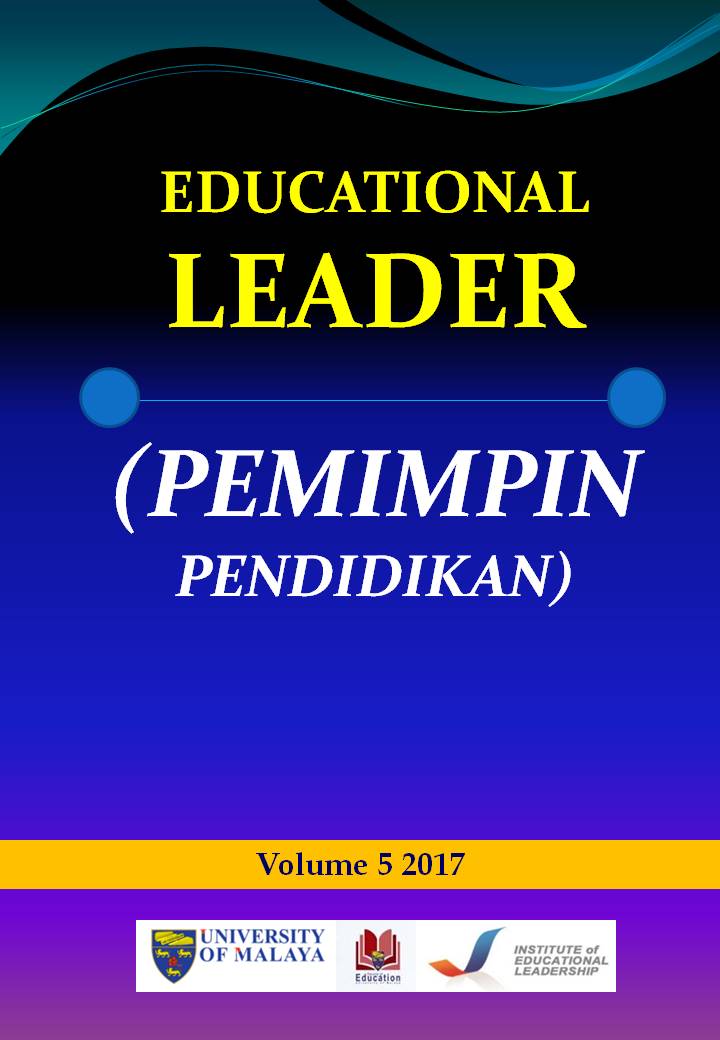Secondary School principal emotional intelligence and its relationship with teacher self-efficacy
Abstract
The ability of the principal to influence teachers to effectively implement the teaching process is capable of producing excellent students to achieve the goals of the school. Therefore, this study aimed to investigate the relationship between principals’ emotional intelligence in influencing teachers' self-efficacy. The research was conducted using a survey method through a questionnaire distributed to 396 teachers in Negeri Sembilan. Data analyses were performed using SPSS through Pearson r Correlation, Multiple Regression and Structural Equation Modelling (SEM) using AMOS. The results showed that the relationship of principal emotional intelligence and teachers’ self-efficacy are moderate, significant and positive (r = .560, p< .01). The main predictor of self-efficacy is the dimension of self-management (β = .384, t = 4.027 and p = .000). Based on the analysis of SEM conducted, it can be concluded that the model for relationship between principal emotional intelligence and teachers’ self-efficacy corresponds with the data and significant at [χ² (N=396, df=13) = 33.043, p< .05] dengan nilai indeks RMSEA= .073 (<.08), nilai indeks GFI =.956 (>.90), CFI =.987 (>.90) dan Ratio Chisq/df = 3.106 (<5.0). From this study it indicates that emotional intelligence has a major influence to teachers’ self-efficacy.

